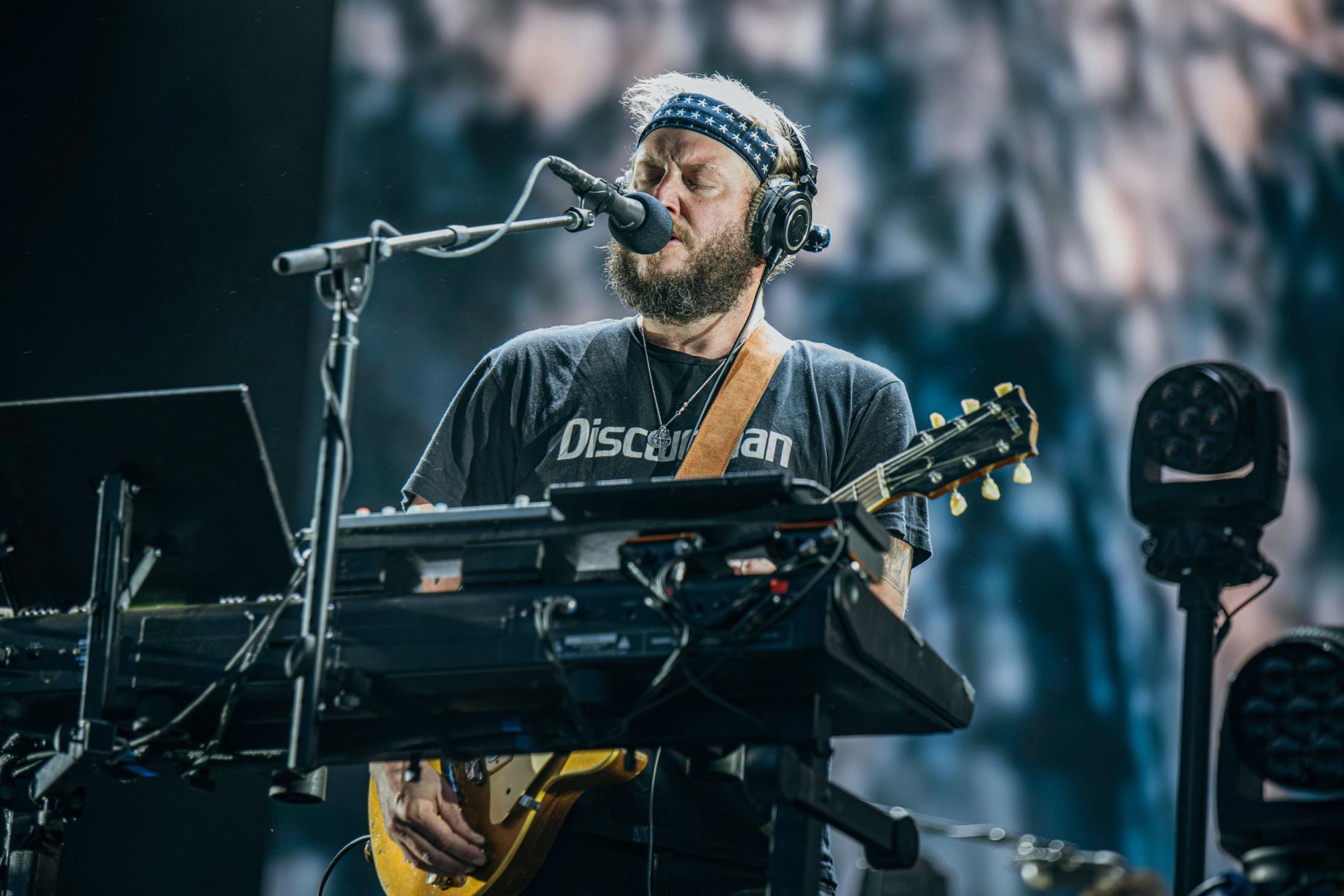Bon Iver review, All Points East: Electronic folk heartbreaker teases new album in entrancing headline set
The Wisconsin experimenter caps an exhilarating performance by debuting two new music videos onstage and announcing a new LP

Your support helps us to tell the story
From reproductive rights to climate change to Big Tech, The Independent is on the ground when the story is developing. Whether it's investigating the financials of Elon Musk's pro-Trump PAC or producing our latest documentary, 'The A Word', which shines a light on the American women fighting for reproductive rights, we know how important it is to parse out the facts from the messaging.
At such a critical moment in US history, we need reporters on the ground. Your donation allows us to keep sending journalists to speak to both sides of the story.
The Independent is trusted by Americans across the entire political spectrum. And unlike many other quality news outlets, we choose not to lock Americans out of our reporting and analysis with paywalls. We believe quality journalism should be available to everyone, paid for by those who can afford it.
Your support makes all the difference.Justin Vernon’s songs have always been bookends. Ever since the singer-songwriter descended upon that cabin in those woods in northwestern Wisconsin in the winter of 2006, emerging three months later with Bon Iver’s acclaimed first album, his music has detailed relationships in either blossom or breakdown, with often agonising intimacy. Tracks such as 2009’s “Blood Bank” chronicle new love: two acquaintances stealing a kiss in a car, candy bar wrappers around them, snow piling on the windshield as they pull each other closer.
Equally emotive are his breakup songs. Debut LP For Emma, Forever Ago – the revered result of that 2006 woodland retreat, and the beginning of an unlikely ascension to pop A-lister status for Vernon – was written after the Eau Claire artist’s own relationship collapsed, sparking bruised folk laments like “The Wolves” on which he ponders “what might have been lost”.
Sunday night, it transpires, represents a different type of bookend for Bon Iver. Three years after his last album, the glitchy 22, A Million, Vernon uses his All Points East festival headline set to draw a line under that LP and tease a new era. A little after 10pm in London’s Victoria Park, the stage goes dark and the 38-year-old and his four-piece band depart, but the show isn’t over. Two new tracks are premiered in colourful music videos on screen. One’s a tender, glacier-paced ballad called “Hey Ma”, led by a metronomic electronic beat and accompanied by home-video visuals of frolicking families. The other, more tantalisingly, is a gospel-tinted pop bop titled “U”, which features LA soul star Moses Sumney. The song ends, a website URL flashes up and as fans filter out of the park, they rush to it on their phones. Bon Iver’s fourth album, it seems, is imminent.
The 22, A Million era ends here on a dazzling high. From thunderous opener “Perth” to the finger-picked Americana of “29 #Strafford APTS”, it’s a set that seamlessly showcases Vernon’s raw melodic might, as well as his refusal to compromise. For Emma, Forever Ago was a smash on release in 2007 (literally forever ago now). The gentle, wintry harmonies of songs like “Lump Sum” made it perfect for coffee shop playlists, adverts and montage moments in TV dramas. Vernon could have churned out a follow-up album made up of 12 regurgitations of “Skinny Love”, its breakout single. Instead, he flirted with gloriously unfashionable Eighties MOR on his second album, and electronic iciness on his third. Bon Iver might have been headlining giant London festivals a lot sooner than this had he not insisted on adventuring into the garbled electronic terrain of tracks like “10 d E A T h b R E a s T” or manipulated saxophone strangeness of “8 (circle)”, both given thrilling run-outs this evening.
Vernon’s stage banter is as minimal and unshowy as his outfit: Nike hi-tops, black jeans, Discwoman tee and a blue bandana that struggles to contain scruffy wisps of hair. At one point he turns weatherman. “Looks like it’s about to f**king s**t it down,” he says, grinning up towards the evening’s grey clouds. “But that’s totally cool.” Instead, Vernon stays largely silent as he powers through a lean 90-minute slot. “Skinny Love”, predictably, is met with a lung-busting singalong. “Creature Fear” climaxes in a cacophony of crashing drums. But it’s his most stripped back moments that impress most, reducing the All Points East audience to the kind of entranced hush seldom few festival headliners are able to command. Autotune a cappella “715 - CR∑∑KS” sends lumps into throats and shivers down spines, while 2009’s “Woods” proves electrifying as ever, Vernon looping and layering vocal harmonies like an architect erecting an ornate chapel.
What might Bon Iver’s next era bring? It’s often tricky to predict what Vernon actually wants. 22, A Million saw him lurch away from the spotlight: his voice distorted, his face obscured in press shots, with a sound and song titles that made him less accessible. His earlier work had brought him to the brink of household name status, collaborating with Kanye West, packing out arenas and being joked about on Saturday Night Live. Instead, Bon Iver pulled away from fame with challenging, abstract folktronica curios like “22 (OVER S∞∞N)” – another of tonight’s highlights. Whatever direction he picks next, on this evening’s evidence, expect it to only grow Vernon’s devoted following and status as a sonic heartbreaker capable of taking a pinata bat to your emotions. “At once I knew I was not magnificent,” the crowd sings along in force as teary finale “Holocene” stirs towards crescendo. Vernon might protest otherwise, but tonight feels pretty magnificent indeed.
Join our commenting forum
Join thought-provoking conversations, follow other Independent readers and see their replies
Comments